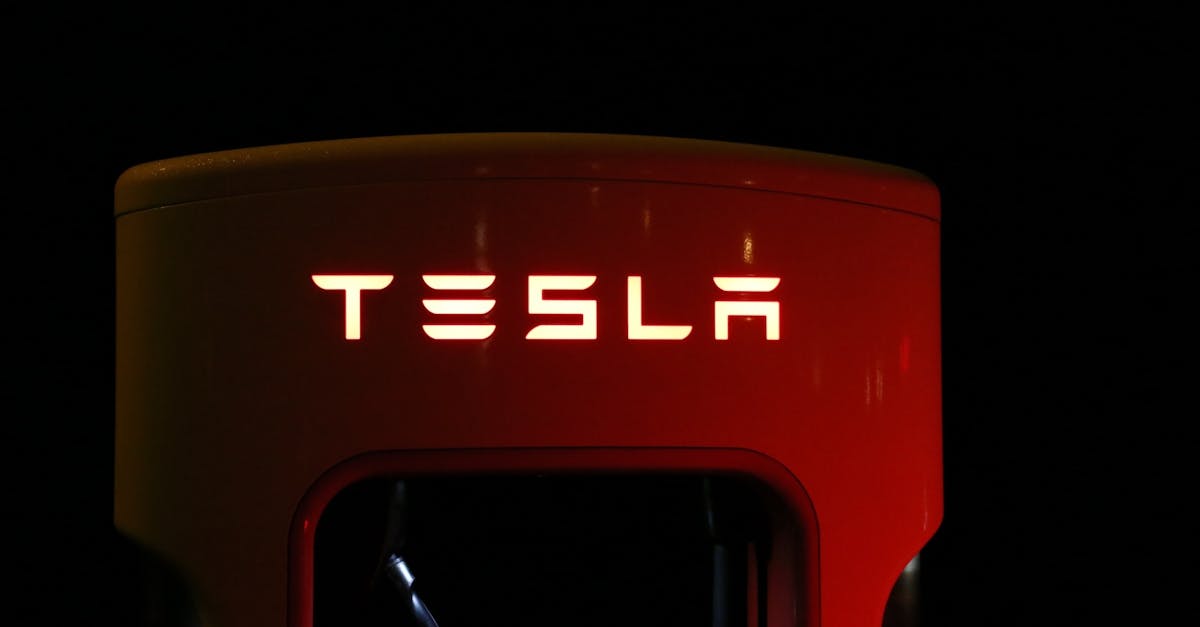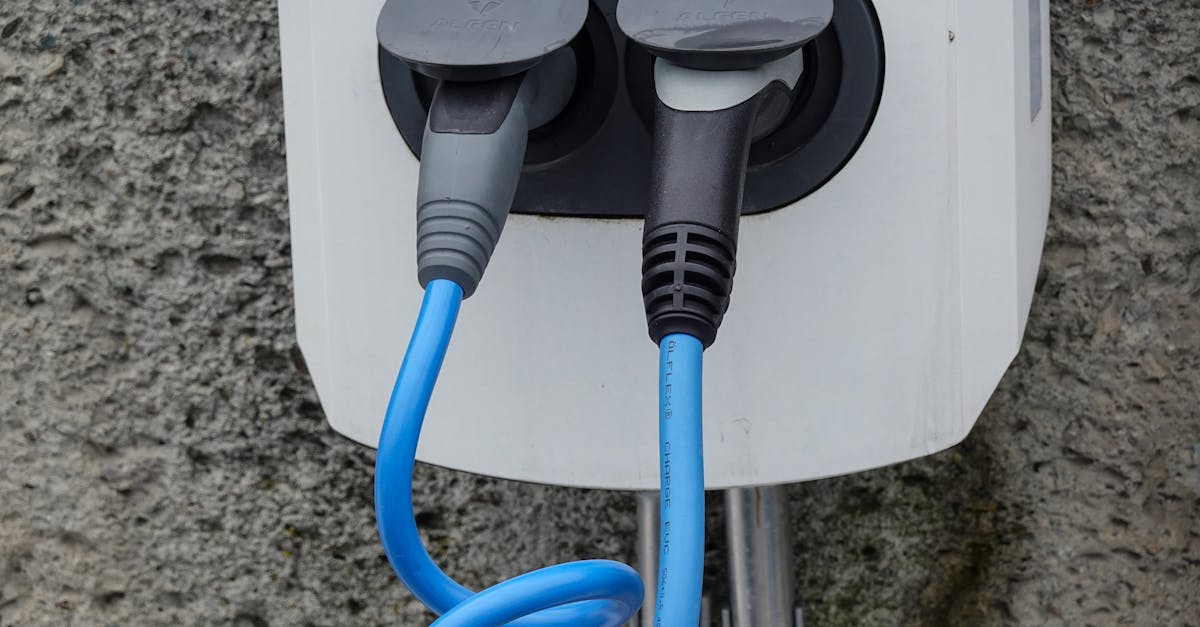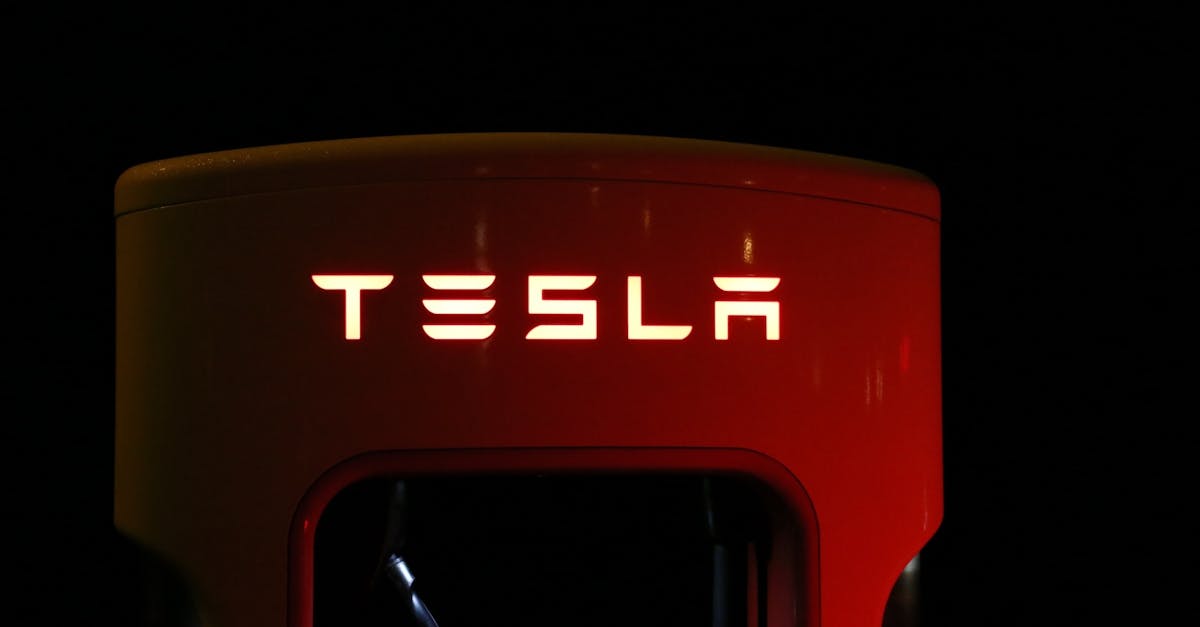Electrifying the Future: Pioneering Sustainable Mobility

As we stand on the cusp of a sustainable revolution, electric cars have emerged as a beacon of hope, heralding a crucial shift towards a greener, more environmentally friendly future. This paradigm-altering transition isn’t just about embracing new technology; it’s about redefining our relationship with the planet and ushering in a new era of responsible mobility. The rise of electric cars resonates with an encouraging message: we have the power to mitigate environmental impact, foster technological innovation, and reshape our urban landscapes for the better.
1. The Environmental Imperative
Thank you for reading this post, don't forget to subscribe!
The Environmental Imperative: Why Electric Cars are Essential for Our Planet’s Future
In the pursuit of sustainable solutions, electric cars have emerged as a pivotal force driving environmental progress. These vehicles are not merely a technological novelty; they represent a fundamental shift in our approach to transportation, offering a beacon of hope in the battle against climate change. Electric cars stand as a compelling solution, significantly reducing greenhouse gas emissions and improving air quality. The encouraging impact of this transition is unmistakable, with these vehicles playing a crucial role in safeguarding our planet’s delicate ecological balance. As cities get blanketed by cleaner air and our carbon footprint shrinks, the adoption of electric cars stands as a beacon of optimism for a healthier, more sustainable future.
Moreover, beyond the reduction of greenhouse gases, electric cars also play a vital role in conserving our natural resources. By embracing these vehicles, we engage in a collective effort to protect precious habitats, reduce our reliance on finite resources, and alleviate the ecological strain our planet endures. This encouraging shift holds the promise of fostering a harmonious coexistence between humanity and our natural world, promoting a future where sustainability and progress intertwine to propel us toward a brighter tomorrow.
Reducing Greenhouse Gas Emissions
Reducing Greenhouse Gas Emissions: The impact of electric cars on lowering air pollution and combating climate change
The growing adoption of electric cars presents an encouraging solution in our collective battle against climate change. By reducing greenhouse gas emissions, these vehicles are effectively mitigating air pollution and fostering a healthier environment. Through their operation, electric cars contribute to cleaner air, reducing the presence of harmful pollutants that endanger public health and exacerbate the effects of global warming. This encouraging shift is not just a technological leap; it’s a pivotal step towards redefining our relationship with the planet, ensuring a sustainable legacy for generations to come.
In combating climate change, the impact of electric cars cannot be overstated. Their operation produces zero tailpipe emissions, thereby significantly reducing the carbon footprint attributed to traditional internal combustion engines. This transition offers an optimistic narrative, as we witness a decline in harmful pollutants, improved respiratory health in urban areas, and a promising step towards achieving international climate goals. The encouraging trend of embracing electric cars not only signifies a reduction in environmental harm but also represents a proactive stance in reshaping the paradigm of transportation, offering a path towards a more resilient and sustainable future.
Preserving Natural Resources
Preserving Natural Resources: How electric cars contribute to safeguarding precious natural resources and habitats
The widespread adoption of electric cars marks a monumental, encouraging stride toward the preservation of our planet’s precious natural resources and habitats. With the transition to electric mobility, we witness a thoughtful, collective effort to reduce our environmental footprint, alleviate the strain on finite resources, and protect delicate ecosystems. By embracing electric cars, we embark on a journey towards a more sustainable future, where the preservation of natural resources is not just a distant goal, but an immediate, tangible reality.
Electric cars play a crucial role in reducing our dependence on finite resources like crude oil, thereby lessening the impact of resource extraction on sensitive ecosystems and fragile habitats. This encouraging shift signifies a departure from the detrimental practices of the past, offering a proactive stance in reshaping our relationship with the environment. Moreover, the innovative technologies driving electric car development amplify this positive trajectory, striving to minimize environmental impact and contribute to a future where ecological preservation and human progress converge harmoniously.
2. Economic Advantages

Economic Advantages: The Financial Benefits of Embracing Electric Cars
Embracing electric cars brings an encouraging array of financial advantages, positioning sustainable mobility as a catalyst for both personal and collective prosperity. The cost-effectiveness of electric cars is becoming increasingly apparent, with their operational and maintenance costs proving to be notably lower than those associated with traditional combustion engine vehicles. This shift not only promises individual savings but also presents a broader economic narrative, highlighting the potential for reduced societal expenditure on healthcare costs and environmental remediation. The encouraging outlook points toward a future where adopting electric cars not only aligns with environmental goals but also bolsters financial well-being at both individual and societal levels.
Furthermore, the incentives and tax credits linked to electric vehicle ownership stand as encouraging enablers, providing a compelling financial impetus for individuals and businesses to transition towards clean, sustainable transportation. These incentives not only encourage adoption but also contribute to a positive economic ripple effect, stimulating innovation and growth in the electric vehicle market. The broader economic landscape benefits from reduced reliance on imported fossil fuels, empowering local economies and fostering job creation in renewable energy and electric vehicle industries.
Cost-Effectiveness
Cost-Effectiveness: Comparing fuel and maintenance costs of electric cars versus fossil fuel-powered vehicles
When it comes to cost-effectiveness, electric cars are presenting an encouraging shift in the way we perceive transportation expenses. One of the most significant advantages lies in the operational costs, where electric vehicles showcase an impressive efficiency in comparison to their fossil fuel-powered counterparts. With lower energy costs per mile and reduced maintenance requirements attributed to fewer moving parts, electric cars are paving the way for a compelling economic narrative. The encouraging financial outlook places electric cars at the forefront of a cost-effective transportation paradigm, promising reduced expenditure and long-term savings for individuals and businesses alike.
Beyond the immediate operational cost benefits, the comparative analysis of fuel and maintenance expenses of electric cars versus traditional vehicles paints an optimistic picture. By diminishing our reliance on traditional fuel, electric cars offer the promise of stable and predictable energy costs, shielding consumers from the volatile price fluctuations associated with fossil fuels. Additionally, the simplified maintenance requirements of electric cars contribute to a reduction in long-term ownership costs, fostering an appealing landscape for potential car buyers and fleet operators looking to maximize their financial returns.
Incentives and Tax Credits
Incentives and Tax Credits: An exploration of government incentives and tax advantages associated with electric vehicle ownership
The realm of electric vehicle ownership unfolds a landscape filled with encouraging incentives and tax advantages, positioning sustainable mobility at the forefront of a supportive governmental framework. Governments across the globe are actively exploring diverse mechanisms to incentivize the adoption of electric vehicles, offering tax credits, rebates, and exemptions to promote a seamless transition towards clean, sustainable transportation. This encouraging scenario presents a compelling narrative, one where the proactive stance of governments fosters an environment conducive to the widespread acceptance of electric cars, nurturing a future defined by reduced emissions and heightened environmental sustainability.
Moreover, the exploration of these incentives and tax credits reveals a landscape characterized by a forward-looking approach, where governments align policy frameworks with the goal of fostering a robust electric vehicle market. The convergence of these financial incentives not only amplifies the accessibility of electric vehicles but also illustrates a concerted effort towards societal and environmental well-being. In this environment, individuals and businesses are not only encouraged to embrace sustainable mobility but also empowered to make a positive impact on the environment while reaping tangible and immediate financial benefits.
3. Technological Innovation
Technological Innovation: Advancements in Electric Vehicle Technology
The landscape of electric vehicle technology is continually evolving, offering a compelling and encouraging narrative of progress, efficiency, and sustainability. One of the most significant areas of advancement lies in battery technology, where ongoing research and development efforts have resulted in improved energy density, longer lifespans, and faster charging capabilities. This panoramic shift not only promises enhanced performance but also paints a promising picture of a future where range anxiety becomes a relic of the past, offering an encouraging stance towards the widespread acceptance of electric vehicles.
Furthermore, the proliferation of charging infrastructure represents a pivotal dimension of this technological revolution. The expansion of charging stations and the growth of fast-charging capabilities serve as beacons of hope, alleviating concerns about range limitations and enabling seamless, convenient long-distance travel. This trend fosters an encouraging landscape where individuals can embrace electric vehicles without compromising on the ease and convenience that traditional fuel-powered vehicles offer, thereby enriching the electric vehicle ownership experience and bolstering consumer confidence in sustainable mobility.
Battery Technology
Battery Technology: The evolution of battery technology signifies a dynamic and encouraging leap towards the future of sustainable mobility. The ongoing advancements in battery technology have revolutionized the landscape of electric vehicles, offering enhanced energy density, prolonged longevity, and accelerated charging capabilities. These developments not only optimize the performance of electric cars but also embody a paradigm shift, rendering electric vehicles increasingly viable and appealing for a wider audience. With each iteration, batteries are becoming lighter, more energy-efficient, and longer-lasting, marking a resounding ascent in the potential for electric vehicles to become a ubiquitous, mainstream choice for transportation needs.
The encouraging trajectory of battery technology is fueling an optimistic narrative, where concerns about range anxiety and recharging times are steadily alleviated, paving the way for a seamless electric vehicle experience. Rapid advancements in solid-state batteries, augmented with innovative materials and manufacturing processes, promise enhanced safety, stability, and energy storage, further solidifying the reliability of electric vehicles. This captivating progress not only transforms the perception of electric cars but also instills confidence in a future where sustainable, emission-free mobility becomes the norm, underscoring the tangible and immediate benefits for individuals, communities, and the planet as a whole.
Charging Infrastructure
Charging Infrastructure: The proliferation of charging stations and the growth of fast-charging capabilities marks a pivotal and encouraging phase in the evolution of sustainable mobility. Across cities and highways, the establishment of robust charging infrastructure stands as a testament to the monumental progress and commitment towards nurturing a seamless transition to electric vehicles. With an expanding network of charging stations and an accelerated deployment of fast-charging technologies, electric vehicle owners are greeted with a landscape that conveys convenience, accessibility, and a seamless refueling experience. This very landscape is not just a promise for today, but a thriving reality that encourages greater confidence in the feasibility and practicality of electric vehicle adoption.
Positioned at the intersection of innovation and convenience, the proliferation of charging stations provides an encouraging portrayal of an electrifying future. The ubiquity of charging infrastructure brings about a notable reduction in range anxiety, thereby inspiring individuals to embrace and integrate electric vehicles into their daily lives without compromise or hesitation. Moreover, the evolution of fast-charging capabilities stands as a pivotal component enabling long-distance travel with electric vehicles, fostering an environment where electric cars are positioned as a robust, reliable, and enticing mode of transportation, resonating with the needs and expectations of modern drivers.
4. Driving Experience

Driving Experience: Enhanced Comfort and Performance
The advent of electric vehicles has brought about an encouraging paradigm shift in the realm of driving experience, offering unmatched comfort, performance, and driving pleasure. The immediate torque delivery in electric cars delivers a smooth, exhilarating driving experience, redefining the very essence of automotive performance while aligning with sustainable, environmentally friendly mobility. This seamless and responsive acceleration not only ensures a thrilling journey but also symbolizes a compelling shift towards a more connected, effortless, and inviting driving experience.
Furthermore, electric cars contribute to reduced noise pollution, fostering a serene and tranquil driving environment. With minimal engine noise and vibration, the interior of an electric car offers a peaceful, uninterrupted ambiance, creating an encouraging and relaxing atmosphere for both drivers and passengers. Embracing electric vehicles represents not just an evolution in mobility but a transformation in the very way we perceive, engage with, and cherish the driving experience.
This promising narrative of enhanced comfort and performance paints a picture where sustainable driving transcends a mere mode of transportation, evolving into a delightful, engaging, and invigorating lifestyle enriched by innovation and ecological responsibility.
Smooth Performance
Smooth Performance: The delight of electric vehicle acceleration and seamless driving experience
The acceleration offered by electric vehicles transcends the ordinary, delivering an encouraging blend of power, precision, and environmental consciousness. An electric car’s instantaneous torque delivery ensures a seamless boost of power, providing a thrilling and delightful driving experience. This commendable performance not only redefines traditional standards of automotive acceleration but also reflects a dedicated effort towards an electrifying future where sustainability intertwines with exhilarating automotive performance.
Moreover, the seamless and serenely quiet driving experience offered by electric vehicles provides an inviting and tranquil journey for both drivers and passengers. The absence of internal combustion engine noise results in a profound reduction in overall vehicle noise, fostering an environment where serenity meets seamless performance. This compelling narrative not only transforms the trajectory of driving experiences but ushers in a promising future where electric vehicles elevate comfort and convenience to unprecedented levels.
The encouraging confluence of rapid acceleration and serene driving ambiance echoes a resounding proclamation: electric vehicles are not just vehicles of transportation, but gateways to an electrifying, eco-conscious future, promising a driving experience that is as thrilling as it is serene.
Reduced Noise Pollution
Reduced Noise Pollution: An exploration of the quiet, serene driving experience offered by electric cars
The realm of electric vehicles unveils a tranquil and encouraging driving environment, distinguished by a remarkable reduction in noise pollution. The near-silent operation of electric cars not only reflects a departure from the clamor of traditional internal combustion engines but also signifies a harmonious blend of technology and tranquility, transforming the driving experience into an illuminating, serene journey. This marked reduction in noise pollution provides not just a respite from the cacophony of urban life but also symbolizes a heartfelt invitation to embrace a future where sustainability is intertwined with a peaceful, unobtrusive driving ambiance.
Furthermore, the serenity within the cabin of an electric car fosters an encouraging atmosphere, enhancing the overall comfort and appeal of the driving experience. The hushed interior not only offers a refreshing departure from the distractions of vehicular noise but also encapsulates a promising vision of peaceful mobility, underscoring the seamless integration of modern transportation with tranquil, uninterrupted journeys. Electric vehicles stand at the vanguard of a driving experience that encapsulates not just the absence of noise, but the presence of a soothing, inviting travel environment.
5. Infrastructure Development
Infrastructure Development: Building a Sustainable Mobility Ecosystem
The ongoing development of sustainable infrastructure marks an auspicious and encouraging stride towards a future defined by sophisticated urban planning and mobility solutions. This concerted effort not only encompasses the expansion of electric vehicle charging networks but also embodies a larger vision of cohesive, forward-thinking urban development. Embracing electric cars heralds the cultivation of a sustainable mobility ecosystem, one that intertwines harmoniously with the urban framework, fostering a landscape of seamless, efficient transportation options. This encouraging shift isn’t limited to the physical infrastructure but also encompasses a transformation in the way communities are designed, united in a collective resolve to promote sustainable and accessible urban mobility.
Moreover, this transformative infrastructure development offers a compelling invitation to reimagine our urban landscapes, encouraging innovative approaches to planning and design. The integration of electric car charging infrastructure with smart city initiatives underscores a palpable commitment towards a future where technology and sustainable living converge, fostering environments where transportation solutions align with environmental sensibilities and community well-being. The promising narrative of infrastructure development serves as a beacon, reflecting an inviting vision of cities where sustainable mobility isn’t just an option but the cornerstone of a vibrant, connected, and eco-conscious urban fabric.
Smart Cities and Urban Planning
Smart Cities and Urban Planning: The role of electric cars in shaping sustainable urban mobility and infrastructure planning
The integration of electric cars into smart cities embodies an encouraging narrative of sustainable urban mobility, underpinning a vision of interconnected, forward-thinking urban ecosystems. Electric vehicles play a pivotal role in steering the trajectory of urban planning towards environmental consciousness and efficiency. Embracing electric cars within the framework of smart cities heralds a paradigm shift, one that positions sustainability at the heart of urban development, fostering a landscape where mobility solutions are seamlessly integrated with technological innovation and environmental responsibility.
Furthermore, the convergence of electric vehicles and urban planning offers an inspiring portrayal of cities that are dynamic, efficient, and ecologically aware. The symbiotic relationship between electric cars and smart cities resonates with an encouraging call to reimagine urban lifestyles, where clean, efficient transportation stands not just as an option but as a vital component of a vibrant, connected urban living experience. The confluence of electric vehicles and smart city initiatives presents an optimistic narrative, steering urban planning towards a future where transportation networks, infrastructure, and technology converge harmoniously, embodying a sustainable, inviting, and innovative urban landscape.
The trajectory of integrating electric cars into smart cities encapsulates a defining adventure, one where sustainability becomes the cornerstone of urban evolution, envisioning cities that are not just smart but also sustainable, responsive, and inviting.
Renewable Energy Integration
Renewable Energy Integration: The potential for integrating renewable energy sources with electric vehicle charging infrastructure presents an exhilarating and promising frontier in the evolution of sustainable mobility. The synergy between electric vehicle charging networks and renewable energy sources underscores a future where clean, emission-free transportation aligns harmoniously with environmentally friendly energy production. This compelling integration is not merely a technological feat but a pivotal narrative, one that paves the way for a robust, efficient, and truly sustainable transportation network. By integrating electric vehicle charging infrastructure with renewable energy, there arises an encouraging vision of a future where transportation is not just a consumer but also a contributor to a cleaner, greener energy landscape.
Moreover, the integration of electric vehicle charging networks with renewable energy sources signifies a profound movement towards a vibrant, interconnected ecosystem, where transportation and energy generation are woven into a unified, eco-conscious fabric. This amalgamation of innovative solutions inspires confidence in a future where electric vehicles are not just powered by renewables but also serve as energy reservoirs, elevating the potential for a thriving, renewable-powered transportation network. The overarching landscape of renewable energy integration with electric vehicle charging infrastructure embodies a compelling and encouraging narrative, setting the stage for a future where ecological sustainability and transportation mobility blend seamlessly, nurtured by an environment of renewable power and environmental stewardship.
- Electric vehicles contribute to:
- a) Increased greenhouse gas emissions
- b) Reduced air pollution and combatting climate change
- c) Higher reliance on finite resources
- Incentives and tax credits for electric vehicles:
- a) Discourage individuals from transitioning to electric cars
- b) Do not impact the broader economic landscape
- c) Stimulate innovation and growth in the electric vehicle market
- What are some benefits of electric vehicles’ battery technology?
- a) Reduced energy efficiency and shorter lifespan
- b) Limited charging capabilities
- c) Enhanced energy density, prolonged longevity, and faster charging
- b) Reduced air pollution and combatting climate change
- c) Stimulate innovation and growth in the electric vehicle market
- c) Enhanced energy density, prolonged longevity, and faster charging




